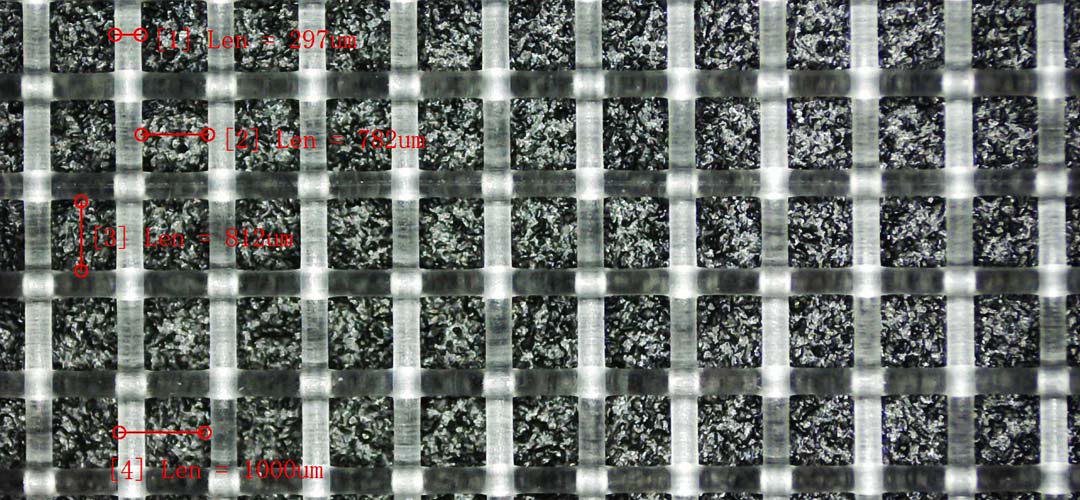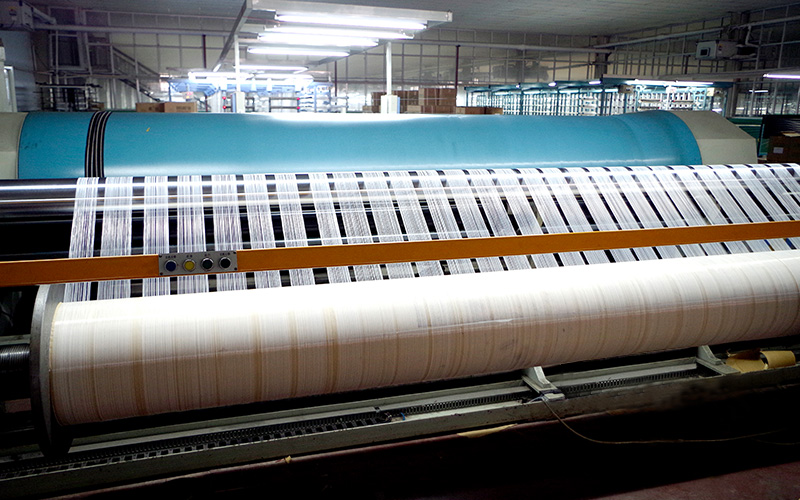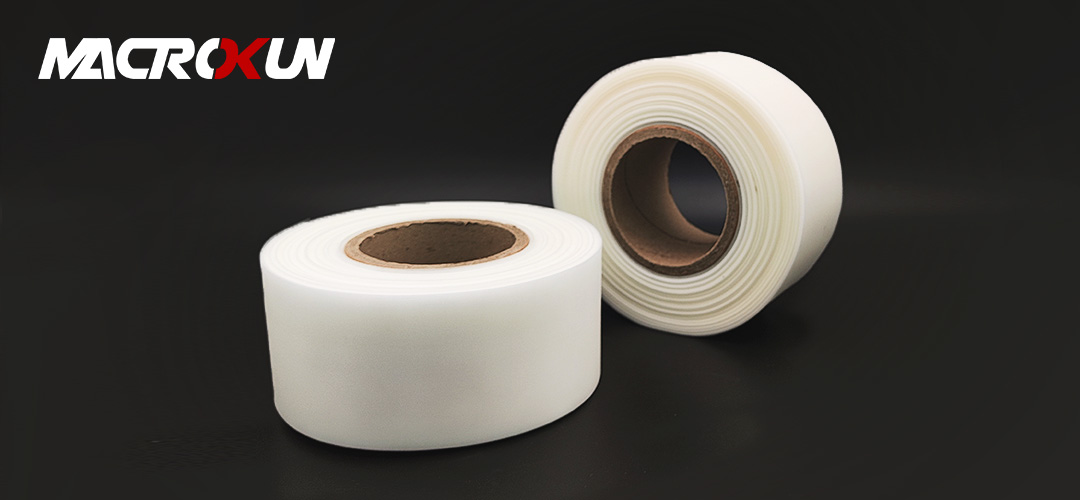Micron nylon mesh is a versatile material that is commonly used in various filtration processes across different industries. Its unique properties make it an ideal choice for applications where precise filtration is required. In this article, we will explore the benefits of using micron nylon mesh in filtration processes and its wide range of applications.
One of the key advantages of micron nylon mesh is its high strength and durability. This material is known for its ability to withstand high temperatures and harsh chemicals, making it suitable for use in demanding filtration environments. Its robust construction ensures that it can effectively capture and retain particles of various sizes, providing reliable filtration performance.

In addition to its strength, micron nylon mesh also offers excellent chemical resistance. This property allows it to maintain its integrity when exposed to a wide range of chemicals, ensuring consistent filtration performance over time. This makes it an ideal choice for applications where the filtration material needs to withstand corrosive substances or aggressive cleaning agents.
Another benefit of using micron nylon mesh in filtration processes is its uniform porosity. This material is manufactured with precise openings that allow for accurate particle retention, ensuring efficient filtration results. The consistent pore size distribution of micron nylon mesh enables it to capture particles of specific sizes, making it suitable for applications that require precise filtration control.
Furthermore, micron nylon mesh is highly customizable, allowing for the production of filters with varying pore sizes and configurations. This flexibility makes it a versatile material that can be tailored to meet the specific requirements of different filtration processes. Whether it is used for air filtration, liquid filtration, or solid-liquid separation, micron nylon mesh can be customized to deliver optimal filtration performance.
The versatility of micron nylon mesh extends to its compatibility with different filtration systems. This material can be easily integrated into existing filtration setups, making it a cost-effective solution for upgrading filtration processes. Its compatibility with various filtration equipment ensures seamless integration and minimal downtime during filter replacement or maintenance.
Moreover, micron nylon mesh is easy to clean and maintain, reducing the overall operating costs of filtration systems. Its smooth surface allows for quick and efficient cleaning, ensuring that the filter remains in optimal condition for extended periods. This ease of maintenance makes micron nylon mesh a practical choice for applications that require frequent filter cleaning or replacement.
In conclusion, micron nylon mesh offers a wide range of benefits for filtration processes, including high strength, chemical resistance, uniform porosity, customization options, compatibility with filtration systems, and ease of maintenance. Its versatility and reliability make it a preferred choice for industries that require precise and efficient filtration solutions. Whether it is used for air, liquid, or solid-liquid filtration, micron nylon mesh delivers consistent performance and long-lasting durability. Consider using micron nylon mesh for your next filtration application to experience its numerous advantages firsthand.
Micron nylon mesh is a versatile material that is used in a wide range of applications across various industries. From filtration to screen printing, this type of mesh offers excellent durability and performance. However, choosing the right micron nylon mesh for your specific application can be a daunting task. In this article, we will provide you with a complete guide to micron nylon mesh and its applications, as well as tips on how to select the right mesh for your needs.
Micron nylon mesh is a type of synthetic fabric that is woven into a mesh pattern. The term “micron” refers to the size of the openings in the mesh, with smaller micron sizes indicating finer mesh. This type of mesh is commonly used for filtration purposes, as it can effectively trap particles of a specific size while allowing smaller particles to pass through. Micron nylon mesh is also used in screen printing, where it is stretched over a frame and used to transfer ink onto a substrate.
When choosing the right micron nylon mesh for your application, there are several factors to consider. The first factor to consider is the micron size of the mesh. The micron size will determine the size of particles that can pass through the mesh, so it is important to choose a mesh with the appropriate micron size for your specific filtration needs. For example, if you are filtering out large particles, you will need a mesh with a larger micron size. On the other hand, if you are filtering out very fine particles, you will need a mesh with a smaller micron size.


Another factor to consider when choosing micron nylon mesh is the mesh count. The mesh count refers to the number of openings per linear inch in the mesh. A higher mesh count indicates a finer mesh, while a lower mesh count indicates a coarser mesh. The mesh count will affect the flow rate of the material being filtered, so it is important to choose a mesh with the appropriate mesh count for your specific application.
In addition to micron size and mesh count, it is also important to consider the material of the mesh. Micron nylon mesh is typically made from nylon, which is a durable and flexible material that is resistant to chemicals and abrasion. However, there are different types of nylon mesh available, each with its own unique properties. For example, some nylon meshes are treated with a coating to improve their chemical resistance, while others are untreated for maximum flexibility.
When selecting micron nylon mesh for your application, it is important to consider the specific requirements of your application and choose a mesh that meets those requirements. If you are unsure about which mesh to choose, it is recommended to consult with a mesh supplier who can provide you with expert advice based on your specific needs.
In conclusion, micron nylon mesh is a versatile material that is used in a wide range of applications across various industries. When choosing the right micron nylon mesh for your application, it is important to consider factors such as micron size, mesh count, and material. By taking these factors into account and consulting with a mesh supplier, you can ensure that you choose the right mesh for your specific needs.
Micron nylon mesh is a versatile material that finds applications in a wide range of industries due to its durability, flexibility, and fine filtration capabilities. In this article, we will explore some common industries that utilize micron nylon mesh and the specific applications within each industry.
One of the most common industries that rely on micron nylon mesh is the food and beverage industry. Micron nylon mesh is used in food processing plants for filtering liquids, separating solids from liquids, and removing impurities from food products. In breweries, micron nylon mesh is used for filtering beer during the brewing process to ensure a clear and consistent final product. In the dairy industry, micron nylon mesh is used for filtering milk and other dairy products to remove particles and bacteria, ensuring product safety and quality.
Another industry that extensively uses micron nylon mesh is the pharmaceutical industry. Micron nylon mesh is used in pharmaceutical manufacturing for filtering and separating active ingredients, excipients, and other materials during the production of medications. Micron nylon mesh is also used in pharmaceutical laboratories for analytical testing and research purposes. The fine filtration capabilities of micron nylon mesh make it an ideal material for ensuring the purity and consistency of pharmaceutical products.
The automotive industry is another sector that relies on micron nylon mesh for various applications. Micron nylon mesh is used in automotive manufacturing for filtering fluids such as oil, fuel, and coolant in engines and other components. Micron nylon mesh is also used in automotive air filtration systems to remove particles and contaminants from the air entering the engine, ensuring optimal performance and longevity of the vehicle. Additionally, micron nylon mesh is used in automotive upholstery for seat covers, headliners, and other interior components due to its durability and flexibility.
The aerospace industry is another sector that utilizes micron nylon mesh for a variety of applications. Micron nylon mesh is used in aircraft manufacturing for filtering hydraulic fluids, lubricants, and other fluids used in aircraft systems. Micron nylon mesh is also used in aerospace research and development for testing and analyzing materials and components under extreme conditions. The high strength-to-weight ratio of micron nylon mesh makes it an ideal material for aerospace applications where weight savings and durability are critical factors.
In the environmental and water treatment industry, micron nylon mesh is used for filtering and separating contaminants from water and other liquids. Micron nylon mesh is used in water treatment plants for removing particles, bacteria, and other impurities from drinking water and wastewater. Micron nylon mesh is also used in environmental monitoring and remediation projects for analyzing soil and water samples for pollutants and contaminants. The fine filtration capabilities of micron nylon mesh make it an essential tool for ensuring clean and safe water supplies for communities and ecosystems.
In conclusion, micron nylon mesh is a versatile material that finds applications in a wide range of industries due to its durability, flexibility, and fine filtration capabilities. From food and beverage to pharmaceuticals, automotive, aerospace, and environmental industries, micron nylon mesh plays a crucial role in ensuring product quality, safety, and performance. Whether it’s filtering liquids, separating solids, or analyzing materials, micron nylon mesh is a valuable tool for a variety of industrial applications.
Micron nylon mesh is a versatile material that is commonly used in a variety of industries, including pharmaceuticals, food and beverage, and electronics. This type of mesh is known for its durability, flexibility, and ability to filter out particles of various sizes. In order to ensure that your micron nylon mesh continues to perform at its best, proper maintenance and cleaning are essential.
One of the most important tips for maintaining micron nylon mesh is to regularly inspect it for any signs of wear or damage. Over time, the mesh can become clogged with debris or develop tears and holes, which can compromise its effectiveness. By inspecting the mesh on a regular basis, you can identify any issues early on and take the necessary steps to address them before they become more serious.
In addition to regular inspections, it is also important to clean your micron nylon mesh on a regular basis. Cleaning the mesh helps to remove any built-up debris or contaminants that can clog the mesh and reduce its filtering efficiency. There are a few different methods that can be used to clean micron nylon mesh, depending on the level of contamination and the type of material being filtered.
| Model | Mesh Count (/cm) |
Mesh Count (/inch) |
Thread Dia (um) |
Mesh Opening (um) |
Thickness (um) |
Weight (g/m2) |
| NL4/1950 | 4 | 10 | 550 | 1950 | 1100 | 307 |
| NL5/1500 | 5 | 13 | 500 | 1500 | 1000 | 318 |
| NL6/1267 | 6 | 15 | 400 | 1267 | 800 | 244 |
| NL7/1079 | 7 | 18 | 350 | 1079 | 700 | 218 |
| NL8/900 | 8 | 20 | 350 | 900 | 700 | 249 |
| NL9/861 | 9 | 23 | 250 | 861 | 500 | 143 |
| NL9/811 | 9 | 23 | 300 | 811 | 600 | 206 |
| NL10/750 | 10 | 25 | 250 | 750 | 500 | 159 |
| NL10/700 | 10 | 25 | 300 | 700 | 600 | 229 |
| NL12/583 | 12 | 30 | 250 | 583 | 500 | 191 |
| NL12/533 | 12 | 30 | 300 | 533 | 600 | 274 |
| NL14/514 | 14 | 36 | 200 | 514 | 340 | 142 |
| NL16/425 | 16 | 40 | 200 | 425 | 340 | 160 |
| NL20/350 | 20 | 50 | 150 | 350 | 255 | 113 |
| NL20/300 | 20 | 50 | 200 | 300 | 340 | 200 |
| NL24/267 | 24 | 60 | 150 | 267 | 255 | 135 |
| NL28/237 | 28 | 70 | 120 | 237 | 204 | 101 |
| NL30/213 | 30 | 76 | 120 | 213 | 204 | 110 |
| NL32/213 | 32 | 80 | 100 | 213 | 170 | 80 |
| NL36/178 | 36 | 90 | 100 | 178 | 170 | 90 |
| NL40/150 | 40 | 100 | 100 | 150 | 170 | 100 |
| NL43/153 | 43 | 110 | 80 | 153 | 136 | 70 |
| NL48/128 | 48 | 120 | 80 | 128 | 136 | 77 |
| NL56/119 | 56 | 140 | 60 | 119 | 102 | 50 |
| NL64/96 | 64 | 160 | 60 | 96 | 102 | 58 |
| NL72/89 | 72 | 180 | 50 | 89 | 85 | 45 |
| NL80/75 | 80 | 200 | 50 | 75 | 85 | 50 |
| NL100/57 | 100 | 250 | 43 | 57 | 73 | 46 |
| NL110/48 | 110 | 280 | 43 | 48 | 73 | 52 |
| NL120/48 | 120 | 300 | 35 | 48 | 60 | 37 |
| NL120/40 | 120 | 300 | 43 | 40 | 73 | 55 |
| NL130/42 | 130 | 330 | 35 | 42 | 60 | 40 |
| NL130/34 | 130 | 330 | 43 | 34 | 73 | 61 |
| NL140/36 | 140 | 350 | 35 | 36 | 60 | 43 |
| NL157/25 | 157 | 400 | 43 | 25 | 73 | 74 |
| NL180/20 | 180 | 450 | 39 | 20 | 66 | 68 |
| NL200/15 | 200 | 500 | 39 | 15 | 66 | 76 |
| NL220/10 | 220 | 550 | 39 | 10 | 66 | 84 |
| NL240/5 | 240 | 600 | 39 | 5 | 66 | 91 |
One common method for cleaning micron nylon mesh is to use a mild detergent and warm water. Simply mix the detergent with water in a bucket or sink, and then soak the mesh in the solution for a few minutes. Gently scrub the mesh with a soft brush or sponge to remove any debris, and then rinse it thoroughly with clean water. Allow the mesh to air dry completely before using it again.
Another method for cleaning micron nylon mesh is to use a pressure washer. Pressure washers are powerful tools that can help to remove stubborn debris and contaminants from the mesh. Simply attach the mesh to a flat surface, such as a wall or table, and then use the pressure washer to spray water at a high pressure onto the mesh. Be sure to use a low-pressure setting to avoid damaging the mesh, and always wear protective gear, such as goggles and gloves, when using a pressure washer.
In addition to regular cleaning, it is also important to store your micron nylon mesh properly when it is not in use. Storing the mesh in a clean, dry place helps to prevent the growth of mold and mildew, which can damage the mesh over time. It is also important to store the mesh away from direct sunlight, as prolonged exposure to UV rays can cause the mesh to deteriorate.
By following these tips for proper maintenance and cleaning of micron nylon mesh, you can help to ensure that your mesh continues to perform at its best for years to come. Regular inspections, cleaning, and proper storage are key to maintaining the durability and effectiveness of micron nylon mesh in a variety of applications.
Pre: Micron Nylon Mesh Screen: Enhancing Efficiency in Filtration Systems
Next: How Nylon Mesh for Filter Sheets Improves Liquid and Air Filtration

MACROKUN has established long-term and stable cooperative relations with many transportation companies such as China Post, DHL, FEDEX, USPS, UPS, etc. Of course, MACROKUN can also provide air and sea transportation. The powerful logistics system enables all MACROKUN'S Printing Mesh, Filter Mesh and Filter Bags and so on to be easily and efficiently transported to any place. For quotes and inquiries, please email our sales team.





